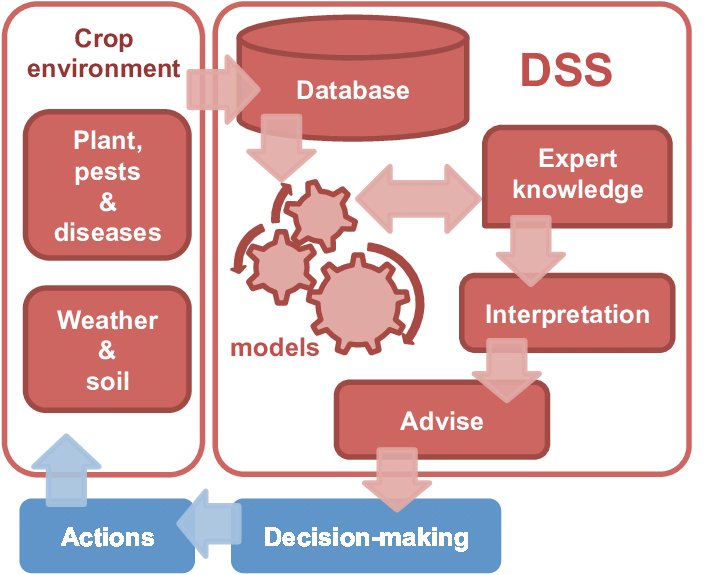
DECISION SUPPORT SYSTEMS
DECISION SUPPORT SYSTEMS
A fully developed decision support system (DSS) is supposed to collect, organize, and integrate all types of information related to the production of a crop, to subsequently analyze and interpret the information, and to eventually recommend the most appropriate action or action choices. Decision support systems for plant disease management may be very simple, e.g., a data processing device, fairly complex, e.g., a computerized expert system, or extremely complex, including automated weather and combinations of decision aids and expert systems, as well as multidisciplinary teams of knowledge specialists. Numerous DSS systems available are aimed to assist practitioners in the field, including county agents, crop consultants, growers, and others.
Many of them have plant disease management modules, such as WISDOM for potatoes by the University of Wisconsin, RADAR for apples by the University of Maine, PAWS for several crops by the Washington State University, and another one, Fieldwise.com, used on several crops on the west coast. Of the many available DSS systems, relatively few are used because they address only specific disease problems, they are too complex to operate, or for other reasons. Cooperation among universities, growers, and industry has resulted in the development
of the Penn State apple orchard consultant in the United States, while in Australia, development of the AusVit DSS for grapes came about through the cooperation of several state departments of agriculture, universities, grower organizations, and private industry.
It is apparent that the development and usage of DSS will become more regional rather than local. The continuing demise of the family farm and the increase in large farms, however, are expected to increase the use of DSS systems significantly.


